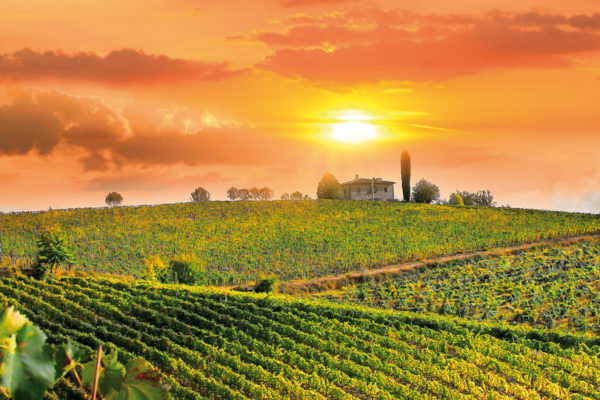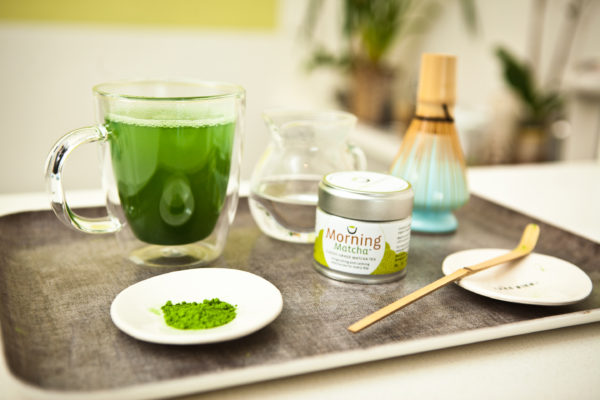The last time you went into a supermarket or off-licence and you saw a wine labelled as ‘organic’, ‘biodynamic’ or ‘produced from organically grown grapes’ were you confused? This short article will dispel the myths and help you make an informed choice.
The term ‘organic’ is defined by European Law and in order for a product to be labeled as such an inspection by a certified body must take place. Organic wines must display on their label the certification body that has confirmed that their product is organic. In Europe these could be; Ecocert, Nature et Progres or Terre et Vie from France, or The Soil Association in the UK.
In fact there is a difference between organic wine and wine produced from organically grown grapes. An ‘organic wine’ must be made from certified organic grapes and be bottled without any preservatives. Mostly, the main wine preservative is sulphur dioxide which must not be added during processing for the wine to be classed as ‘organic’. Sulphur dioxide is used by 99% of all wine makers and even if the tiniest amount is used then a supposed wine grower must describe the wine as ‘made from organically-grown grapes’ but not as an ‘organic wine’. Due to the additional paperwork and fees involved in obtaining full ‘organic status’ some wine growers state that they use ‘organic methods’ without specifically naming their product organic.
grapes. An ‘organic wine’ must be made from certified organic grapes and be bottled without any preservatives. Mostly, the main wine preservative is sulphur dioxide which must not be added during processing for the wine to be classed as ‘organic’. Sulphur dioxide is used by 99% of all wine makers and even if the tiniest amount is used then a supposed wine grower must describe the wine as ‘made from organically-grown grapes’ but not as an ‘organic wine’. Due to the additional paperwork and fees involved in obtaining full ‘organic status’ some wine growers state that they use ‘organic methods’ without specifically naming their product organic.
Asthmatics, many of which are particularly sensitive to sulphur dioxide, may find that drinking organic wines has added benefits. There is evidence to suggest that they are more susceptible to suffer an allergic reaction to wines containing sulphur dioxide than to those wines without. The lower levels of sulphur dioxide could also reduce other allergic reactions such as migraines and skin rashes that some people suffer from after drinking wine.
Currently, organic wines form just a small drop in the ocean of the wine market. However, they are becoming ever increasingly in demand. Some vineyards, seeing the increased status that producing an organic wine could give them actively attempt to change their production methods in order to become organic. This process is called reconversion.
Reconversion is the process by which a conventionally-maintained vineyard can make the transformation to organics over a period of time. This reconversion period is set at three years for vineyards because the grapevine is a perennial plant, whereas only two years’ reconversion is required for annual crops like wheat or vegetables. The reconversion period only starts once wholly organic practices are adopted, so once the reconversion process has started a producer can’t use any non-organic production practices. Reconversion is a tough road for the wine producer, the extra paperwork, certification fees and also understanding that their yields and hence income could reduce. However, it is becoming increasingly popular in all parts of the world for traditional vineyards to adopt reconversion.
‘Biodynamic Wines’ are often described as the next level from organic wines and the media has coined the term ‘Super Organic’ to easily describe the process. Based on Rudolf Steiner’s 1924 lecture series, biodynamic methods are organic, but also match the natural rhythms of the earth and cosmos with the vine and its capacity to bear fruit. For example, during Biodynamic production lunar cycles are used to determine when the vines should be pruned or when the fermentation process should commence.
Detailed knowledge of astronomy and astrology dictate the timing of all aspects of cultivation, harvesting and winemaking. Special sprays of homeopathic strengths are used to increase fertility of the soil and to protect the vines from pests and diseases.
To some this approach seems outlandish – bizarre even – yet its popularity is increasing. A growing number of top wine makers are adhering to this philosophy. Certainly it’s an approach to wine-making which is attracting some serious and world-wide attention.
Biodynamic winemakers claim to have noted stronger, clearer, more vibrant tastes, as well as wines that mature more favorably. Nonetheless, critics of the biodynamic process mention that the so called improvements to taste are due to a more meticulous approach to cultivation and fermentation and have little to do with channeling life forces from the cosmos.
In conclusion, although there is some debate to the better taste of organic wines, purchasing organic or ‘super organic’ biodynamic varieties offers your support to sustainable production methods that impact the natural environment and ecology as little as possible.
Article written by Kevin Allen, author and founder of [http://www.essentialfinewines.com/]
[http://www.essentialfinewines.com/] is an impartial wine information site, allowing lovers of wine to find their favourites. Visitors can discuss their experiences and give opinions on different wine matters. The site also has extensive sections covering premixed wine cases and wine gifts.
Article Source: http://EzineArticles.com/?expert=Kevin_J_Allen
Article Source: http://EzineArticles.com/1765913


